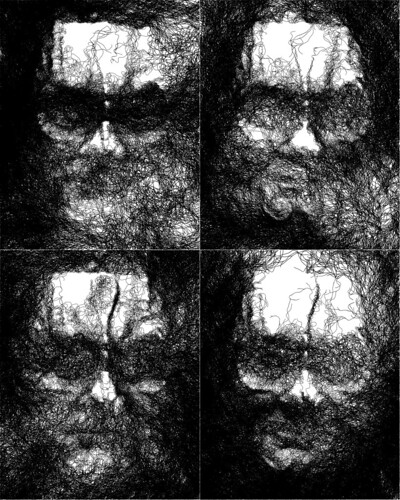I used to be resistant to the idea of coding. It wasn’t just fear that I couldn’t do it, though that was part of it; it was also the sense that I wouldn’t be able to get to the actual art and music making if I got too involved in programming. And, actually, that bit can be true. But a group of pioneers, working on projects like Processing, OpenFrameworks, and other intelligent development frameworks, has been working really hard to make code an elegant an expressive tool rather than a hindrance. Processing has reached widespread popularity because it does this really, really well — even if you’ve never programmed before.
I’ll be teaching a three-part class on Processing at Harvestworks in New York next month. If you’re in the area, there should still be openings if you’d like to sign up (and if you’re enrolled, feel free to holler hi here — if I hear from you in advance, I can help tailor the course to your needs).
For intermediate digital artists, even those who have never coded before, we will introduce techniques in Processing. Processing is an elegant, high-level, Java-based tool designed to make coding friendly to artists. We will learn how to create generative art in just a few lines of code, building interactive works in minutes. We’ll also look at some of the deeper possibilities for manipulating data, video, images, sound, and MIDI and other I/O. The emphasis will be on basic sketches that help introduce fundamental coding skills.
Wednesdays, March 5, 12 and 19, 6:30 – 9:30pm
$325/$385
The class will specifically focus on how to make video, 3D visuals, MIDI, and sound work for performance. Making Processing a performance tool definitely involves some particular skills. But I’ll also use this as an opportunity to teach very basic coding techniques so that unfamiliar programming topics can immediately generate something on the screen or some sound, since that’s part of the appeal of the whole tool.
But what if you’re not in New York?
We’ll soon have CDM Labs up, which will include examples from the team at CDM, plus other stuff from around the Web, not only in Processing but related tools, as well. I’ll use this as a playground for the course, so what I share with them, I can share with you. And, honestly, we hope this will help discipline us here to keep coding and keep documenting. More on that soon.
I’m also hoping to refine this course into something that can be offered elsewhere; if you’re interested, get in touch.
More on Processing:
Random sketchbook of mine, the kind of stuff you can put together in minutes
Processing tag on Create Digital Motion
Official Processing exhibition page

